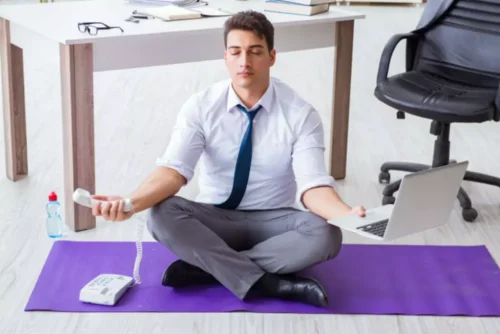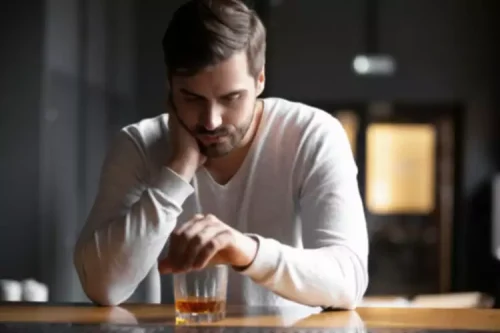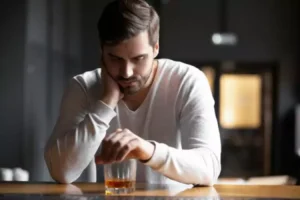
It has intoxicating effects, meaning it can temporarily alter a person’s mood, thoughts, and perceptions. It should note that CBD (15-60 mg/kg) did not change locomotion but prevented D-AMPH-induced hyperlocomotion elicited without catalepsy induction in mice (Moreira and Guimarães, 2005). CBD shows promise for reducing drug cravings for patients with opioid use disorder.
Consumer health
- The FDA approved the treatment for patients as young as two years old.
- If you live in a state that hasn’t yet legalized medical cannabis or these products are unavailable, you can still benefit from products containing industrial hemp-derived CBD.
- This journal is a member of the Committee on Publication Ethics (COPE).
- In the SA model, CBD (10-40 mg/kg) dose-dependently blocked acquisition and reduced total intake of cocaine in both rats and mice (Galaj et al., 2020; Luján et al., 2020), in addition to lowering voluntary consumption and progressive-ratio breaking point in mice (Luján et al., 2018).
Elsewhere, twenty frequent cannabis users daily received CBD (200mg) in a 10-week, open-label trial while continuing their regular cannabis use. All subjects were evaluated at baseline and post-treatment by psychological and physiological tests. CBD was well-tolerated without exhibiting notable deleterious effects; some participants even retrospectively declared a decrease in euphoria when smoking cannabis. No cognitive defects nor detrimental effects on the psychological condition were observed. Furthermore, participants underwent considerably fewer depressive and psychotic-like symptoms at posttreatment compared to baseline.
Learn more about CBD and cannabis

The strongest evidence for its effectiveness is in treating medical conditions including epilepsy. Dravet syndrome and Lennox-Gastaut syndrome (LGS), which typically don’t respond to anti-seizure medications, have been found to respond to CBD. It was found to not only reduce the number of seizures, but in some cases stopped them entirely. The positive effects of CBD detected in the animal models of alcohol addictions justified further studies evaluating the therapeutic effects of CBD in patients seeking treatment for alcohol use disorder (Nona et al., 2019; Turna et al., https://ecosoberhouse.com/ 2019) (Table 1). In an additional study, long-term heavy cannabis users showed a reduction in HIP volume (Yücel et al., 2016; Yücel et al., 2008), and gray matter density. An inverse correlation of the ratio THC/CBD with the volume of the right HIP was noted.
Is CBD considered a drug?
- While it no longer considers CBD a drug on its own, CBD can be in the drug Epidiolex, which the FDA approved to treat seizure disorders.
- Infusion of CPZ into the NAc attenuates morphine-induced CPP (Heng et al., 2014), tolerance, and withdrawal phenotypes in mice.
- Advocates say medicinal cannabis offers effective relief when other treatments are failing.
- CBD is a cannabinoid substance in the cannabis plant along with THC.
But it’s possible to get hooked on marijuana, also known as cannabis. Studies show about 1 in 10 adults who use marijuana can get addicted. The only addition that the author made to the patient’s treatment regime was the CBD oil.
- Dopamine may trigger and strengthen feelings of pleasure, but the activity that led up to this surge is even more significant.
- Drugs in this group include opioids such as morphine, methadone and oxycodone.
- The dosage was gradually decreased from 24 to 18 mg, with the patient using no sprays during the day and 6 sprays at bedtime.

At the same time, the patient’s other supplement therapy was discontinued to is cannabidiol addictive simplify treatment, as no clear benefit was demonstrated. The initial regimen was 24 mg of the CBD oil, with 6 sprays PRN during the day and 2 sprays QHS. The dosage was gradually decreased from 24 to 18 mg, with the patient using no sprays during the day and 6 sprays at bedtime.

Harvard Health Ad Watch: Got side effects? There’s a medicine for that

Adamczyk et al. have further found that SB366791, a TRPV1 antagonist, reverses cocaine-induced reinstatement of previously extinguished cocaine-seeking behavior. Conversely, SB did not reduce cocaine SA, suggesting that TRPV1 activity is not necessary for the reward response but is involved in the mechanisms underlying cocaine relapse (Adamczyk et al., 2012). Taken together, these data demonstrate involvement of TRPV1 channels in response to substance abuse, identifying this as an essential pharmacological target in addiction therapy.
- For acute pain, such as arthritis and nerve pain, relief from symptoms is thought to be predominantly due to CBD’s anti-inflammatory actions.
- Several studies have proposed that CBD may be a reliable agent to inhibit the reinforcing and rewarding impact of drugs.
- In the future, more mechanistic studies are warranted to elucidate the detailed mechanisms of action of CBD in the gut.
- It’s also important to choose high-quality CBD products from reputable sources and follow their recommended dosing guidelines.
- Since CBD doesn’t induce intoxication, it has a similar potential for abuse to placebo.
- It was reported that CBD (10 mg/kg) potentiated stress-induced reinstatement of cocaine-seeking behavior (Luján et al., 2021) while cocaine-induced reconsolidation and priming-induced reinstatement remained unchanged following CBD treatment in mice (Luján et al., 2018).
Is Cannabidiol Addictive? The Truth About CBD and Addiction
The American Cancer Society says that some evidence points to CBD’s anticancer properties and benefits in managing cancer treatment side effects. A 2013 report published in Neuropsychopharmacology described the case of a 19-year-old woman who had cannabis withdrawal symptoms. After being treated with CBD for 10 days, she experienced an effective decrease in the severity of her symptoms 1. Since CBD doesn’t induce intoxication, it has a similar potential for abuse to placebo. According to a 2017 study published in the Journal of Drug and Alcohol Dependence, oral doses administered to frequent marijuana users produced similar results to the placebo pill. Psychiatrists and researchers studying addiction report that pleasure-seeking is just one of the many factors contributing to addiction.
